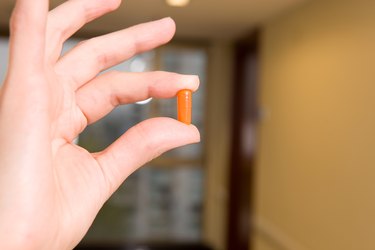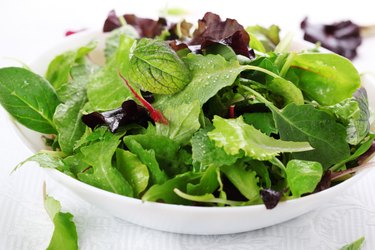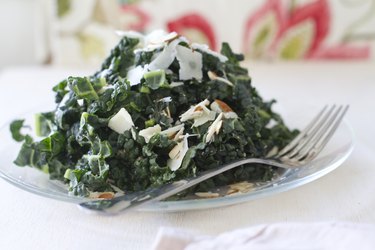
If you have a history of atrial fibrillation, heart valve surgery or poor blood flow to your brain or heart, your doctor may prescribe a blood thinner. Blood thinners reduce blood clots and lower your risk of having a heart attack or stroke. There are a number of different blood thinners your doctor may prescribe, including Lovenox. While you may be instructed to avoid certain foods when taking some types of blood thinners, such as Coumadin, this is not necessary when taking Lovenox.
Lovenox
Video of the Day

Lovenox is an anticoagulant used to treat and prevent blood clots. It works by inhibiting your body's natural clotting factors. It is often prescribed to treat or prevent deep vein thrombosis, which can cause the formation of blood clots in the lungs. Deep vein thrombosis is most commonly seen in those who are bedridden, as well as in individuals who have recently undergone surgeries such as for hip or knee replacement. Lovenox is also used to prevent blood vessel complications in people experiencing chest pain or heart attack.
Video of the Day
Concerns

Risk of increased bleeding is a major concern when taking Lovenox. You should tell your doctor if you are taking any other medications or supplements that thin your blood such as aspirin, ibuprofen, naproxen, garlic, ginger, ginkgo or ginseng. It is also recommended that you not take Lovenox if you are allergic to pork products, or enoxaparin, heparin or benzyl alcohol.
Foods to Avoid

While vitamin K foods promote blood clotting, you do not need to avoid any foods while taking Lovenox, according to Drugs.com.
Vitamin K and Anticoagulants

In the liver, your body uses vitamin K to produce the substances needed for blood clotting. Vitamin K interacts with certain anticoagulants, Coumadin and warfarin, decreasing their effectiveness in preventing your blood from clotting. When taking these specific anticoagulants, you need to eat a consistent amount of vitamin K each day to ensure your blood stays at the right consistency to prevent clotting. Because Lovenox does not interact with vitamin K, it is not necessary to limit or avoid foods high in vitamin K such as spinach, kale or broccoli.